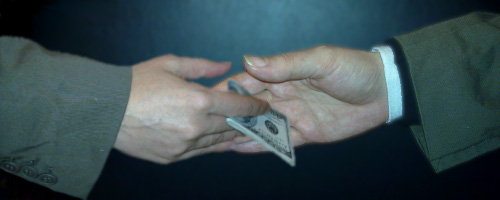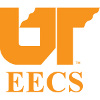Corruption

Working in collaboration with Francisco Úbeda from The University of Tennessee, we developed a theoretical model to study the evolution of corruption. The article, is currently in press in the journal Evolution, and can be accessed here.
Being a controversial topic with a broad range of applications, the work has attracted a bit of mixed attention. The Brazilian popular science magazine Galileu invited me to write about it, to which I agreed eagerly. Hopefully that article can clarify a bit of the aim and implications of the work.
The folks at Gelileu were also kind enough to let me reproduce below the English version I originally wrote for them. Thanks! Their published article (in Portuguese) can be found here.
Can corruption hold a society together?
Even over the phone, I could hear that my friend was deeply shaken. A group of squatters, she explained, had moved into the house she had just finished renovating. “Well,” I said, “why don't you call the police and make them move out?”
“That's the problem,” she replied. “They are the police.”
In many countries, situations like this would be unheard-of; sadly, in others like my home country, they are unremarkable. My friend soon discovered that evicting her squatters would require navigating a minefield of corrupt legal and judiciary officers – costly, time-consuming, and risky. She could lose the house altogether. Instead, she opted for expediency: she paid the police officers several thousand dollars, and they promptly removed themselves.
Corruption is such a widespread and damaging problem, especially in developing countries, that one would be hard-pressed to find anything positive about it. However, the police officers who invaded my friend's home made a handsome profit, largely because of the power inequality between a civilian and an officer. So we can intuitively see why corruption can be so hard to eradicate. But being a scientist means one wants a deeper understanding of patterns we observe around us. Because of this, when Dr. Francisco Úbeda approached me with the idea of theoretically studying corruption, I was attracted to the project.
We used evolutionary game theory, which is a standard way of studying how strategies spread in societies. Note that game theory assumes that individuals are purely rational, where rational means that the strategies that spread are those that yield a higher payoff for individuals. In the real world, such a simple scenario is seldom encountered. People are not rational agents, and we live in complex networks of relationships, where trust, reciprocity, reputation and many other factors come into play. Nonetheless, the very simplicity of game theory models can help us to understand how societies might evolve.
In our case we wanted to explore the interaction between cooperators (good civilians that take a risk of trusting others), defectors (selfish individuals that take the chance to exploit others), honest police (officers that don't exploit civilians and punish anyone who exploits) and corrupt police (officers that punish defectors, but also exploit others when possible). Much work has been devoted to understanding how cooperation may flourish in rational societies where defection is advantaged. Previous models showed that policing was one way to keep defectors at bay, but those studies neglected the possibility that police themselves might be corrupt.
We found that corruption can indeed spread throughout the police force. Perhaps more notably, this situation can be stable, and end in a social well-being that is higher than if the population lacked any police force. As it turns out, even though police officers can seek personal advancement and thus be corrupt, they still keep defectors at bay. This lack of defectors can hold a society together. Of course, the highest social well-being is still achieved in societies that have an honest police force.
Our research suggests that power inequalities promote and maintain corruption. It seems Lord Acton had it right in the late XIX century when he said “power corrupts, absolute power corrupts absolutely.”
To eliminate the “appeal” of corruption completely, a society would need to reward police consistently and substantially, while punishing corruption and defection equally and severely. As a consequence, the police force has enough incentives to do its work honestly and little or no incentive to be corrupt. But in countries that unfortunately suffer from social inequalities, people might be still better off with corrupted cops than without cops at all...
About Me
![]() Edgar A. Duéñez Guzmán is a Senior Research Engineer at DeepMind.
Previously he was at Google, where he developed the first
machine learning system to select the index for Image Search.
During his academic career, he was a Postdoctoral fellow at the
Department of Biology at
KU Leuven working with
Tom Wenseleers in social evolution in microbes;
Edgar A. Duéñez Guzmán is a Senior Research Engineer at DeepMind.
Previously he was at Google, where he developed the first
machine learning system to select the index for Image Search.
During his academic career, he was a Postdoctoral fellow at the
Department of Biology at
KU Leuven working with
Tom Wenseleers in social evolution in microbes;
and a Research Associate at the
Department of Organismic and Evolutionary Biology at
Harvard University working with
David Haig in social evolution and imprinting.
Learn more...
Contact Info
E-mail: eaduenez {at} gmail {dot} com
 KU Leuven
KU Leuven OEB - Harvard
OEB - Harvard EECS - UTK
EECS - UTK FIT - Monash
FIT - Monash NIH
NIH HHMI
HHMI CIMAT
CIMAT


